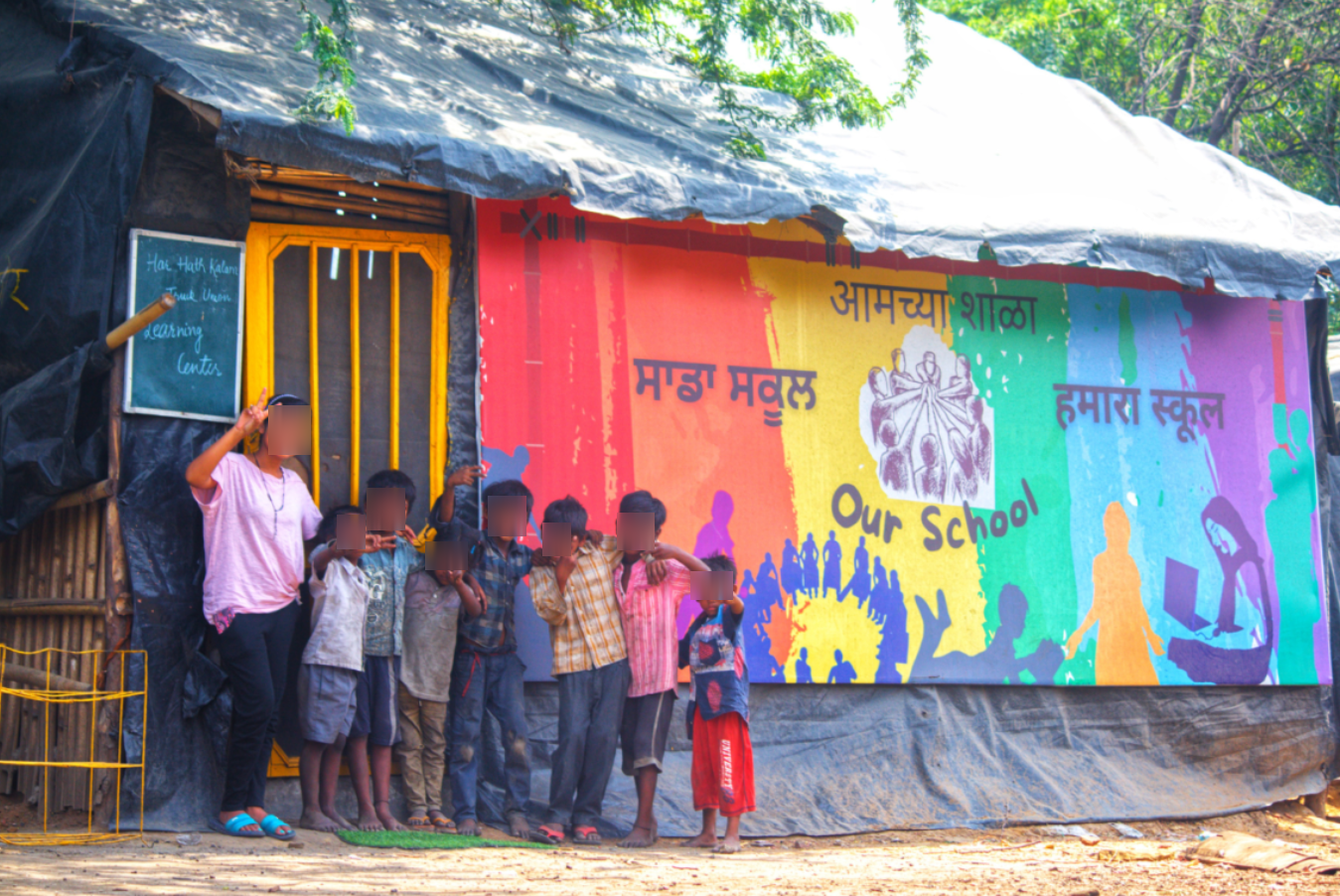WHEN I was a child growing up in a small town in Punjab, listening to our principal giving a speech about people who have changed the world, world leaders, freedom fighters, activists and bureaucrats, I always felt a lot of passion to meet those people or maybe, be one of them. Then, board exams and practical life took over and those dreams and aspirations seemed to fade, and I started to consider myself a lot more “normal” and think that maybe, you have to be someone extraordinary to be a changemaker. This thinking changed when I came across an initiative started by my college seniors during my first year of engineering. As we 17 to 18-year-old so-called “youth” of the nation huddled during the orientation, a question was posed to us: All of us had a modest childhood, good schooling and career guidance that brought us here but what about the children we see on streets of the city, don’t they deserve the same too? And for the first time, I paid attention to the kids on streets around the city and felt a sense of ‘privilege’. Little did I know that this was the beginnings of Har Hath Kalam India Association.
One might think that NGOs start with working on a particular cause, honoring someone’s legacy, or as an outcome of one’s own experiences. But here, I witnessed the journey of self-driven youth without a long-term agenda (all of them were going to be future engineers), curious about a problem and determined to get a solution in a city that they had no previous connection with.
How Har Hath Kalam India Association started
As a result, Har Hath Kalam India Association was set up but was called Kalam back then. With the mission, Every Child to School, a group of 20-25 college students went out in the city every day after their 8 am to 5 pm classes. The idea was threefold:
- 1. Get to know the children
- 2. Make people aware of not giving alms
- 3. Provide alternatives to the child
But the execution wasn’t easy. Why would a child trust these teens from this elite private college, preaching to them to go to school so they could be one of them and be a part of society?
Rightly so, that’s not what we at Har Hath Kalam India Association did. We just went out to make genuine friends. We used to sit at traffic signals, outside high-end cafes and on the roadside with them for months just to understand them, without any judgment and without any advice. Mind you, there were cases where, after interacting with them for two months, a child would confess and share their real name.
How our projects started
Over the next 3-4 years, we launched multiple projects to cater to the children. We set up small shops for parents of the children so that the child is relieved from financial burdens, enrolled family members who were drug addicts into deaddiction centers, and helped them get Aadhaar cards and Ration cards to avail various government schemes and medical benefits. We organized mass awareness events on the issue of anti-begging with a total participation of over 25,000 school and college students and over 1 lakh citizens of Patiala.
And just a reminder, Har Hath Kalam India Association was not yet a registered NGO nor did we have any funding or a full-time team. All of this was done by passionate college students utilizing the power of youth, collaboration, transparent genuine efforts and the ability to ask for help. And in my college years, I understood that you didn’t have to be someone extraordinary to be a changemaker. Anyone, anywhere, in any way, big or small can be a changemaker.
Our transformation to Har Hath Kalam India Association
The journey of ‘Kalam’ didn’t stop there. It took a transformative change when one of the core members who started it – Harsh Kothari, left his lucrative MNC job to work on the cause full time in Patiala, Punjab. And that’s when we got registered as a Section 8 not for profit company and the transition from Kalam to Har Hath Kalam India Association happened.
Until then, we had enrolled around 150 children from the streets to school. But unlike films, the journey of social change doesn’t have a linear graph, it’s a path of constant ups, downs and circle backs. Things started to stumble when 90% of the children started dropping out. And we were left with another set of questions – are our schools not safe? Don’t they provide the same education to everyone? If we were not forced to go to school by our parents, would we want to go by ourselves? The children on the streets are earning at least Rs. 500 per day. Does school education provide them with relevant learning that adds to their life skills and ensures a better career path?
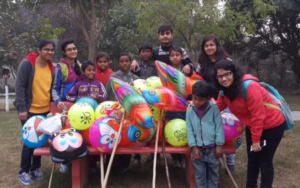
Examining our school system
After two years of asking these questions, constant efforts with children and their parents and understanding the school dynamics, we came upon this learning – the majority of our schools are not a safe space for children. Their emotional needs are not met and most of the curriculum is irrelevant to their context making the children feel excluded.
Imagine the heart of a child who fought with her family to stop selling balloons and go to school only to hear the teacher say: “तुम दूर रहो, तुमसे बांस आती है” (stay away, you smell)!
They shared: “हमें वर्दी गंदी होने पर बाहर निकाल देते हैं, पर 2 दिन से पानी ना हो बस्ती में तो कपड़े कैसे धोएं ” (we are thrown out if our uniforms are dirty, but how can we wash our clothes if there is no water in the slum for two days)?
What did we answer to this question: “हमें 15-16 साल में ही घर में हाथ बंटाने के लिए काम करना पड़ता है, तब तक पढ़ भी लेंगे तो क्या फायदा होगा”(we have to work at home until the age of 15-16, so what will be the benefit if we study until then)?
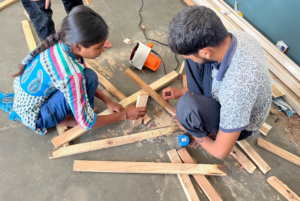
With a lot of learning and unlearning, the vision of Har Hath Kalam India Association changed from ‘Every child to school‘ to ‘Every child deserves to be part of a meaningful learning environment‘.
A learning space for the children
A space was set up to cater to the learning needs of children on the streets, with flexible timings and personalized learning. It is a safe and expressive space where dialogue and reflection form the foundation and relevant life and vocational skills along with Financial Literacy and Numeracy (FLN) are taught. A child is not punished if they get sleepy in class, but are given the space to lie down and rejoin whenever they wish because the child was probably up at 4 am fetching water from a tap two kilometres away for the whole family.
And the impact started showing up too. The children owned the space, painting it according to their needs, making ground rules, and exploring every subject as a project. Suddenly, the restrictive boundary lines were blurred.
How Har Hath Kalam India Association transformed their futures
Today, as I write this, two of the students have started their career paths and are now contributing to their families bringing a generational change. Sandhya works in the development sector as a Project manager in Pune earning Rs. 25k and has bought land to build their own house while Peter is a software developer working in Orissa and is freelancing side by side. 3 girls are interning in different roles and 2 boys are exploring careers as professional filmmakers.
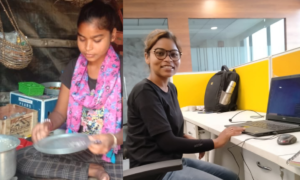
More than 50 children have permanently left begging and are also ensuring that no child in their vicinity starts begging ever. The children also counsel parents and encourage each other if someone thinks of dropping out.
For me, each of them is a changemaker. A leader who left his job to work on this cause is a changemaker, a college student who devotes their time beyond studies is a changemaker, a parent who sends their child to space to break this generational cycle is a changemaker, an educator who decides to leave a conventional school job to work in this space is a changemaker, a supporter who decides to donate Rs. 100 per month to support the cause is a changemaker, and someone who reads this piece till here and sends out a positive affirmation to the universe of hope and empathy – you are a changemaker!
Support Har Hath Kalam India Association
–
Give’s mission is to “make giving bigger and better.” Give is the most trusted donation platform in India for fundraisers and crowdfunding campaigns. Through our technology solutions, we enable individuals and organisations to fundraise and donate to a cause, charity or NGO with trust and convenience. Give’s community of 2.7M+ individual donors and 300+ organisations supports 3,000+ verified nonprofits with 80G deduction and serves 15M+ people across India. Find a fundraiser today!
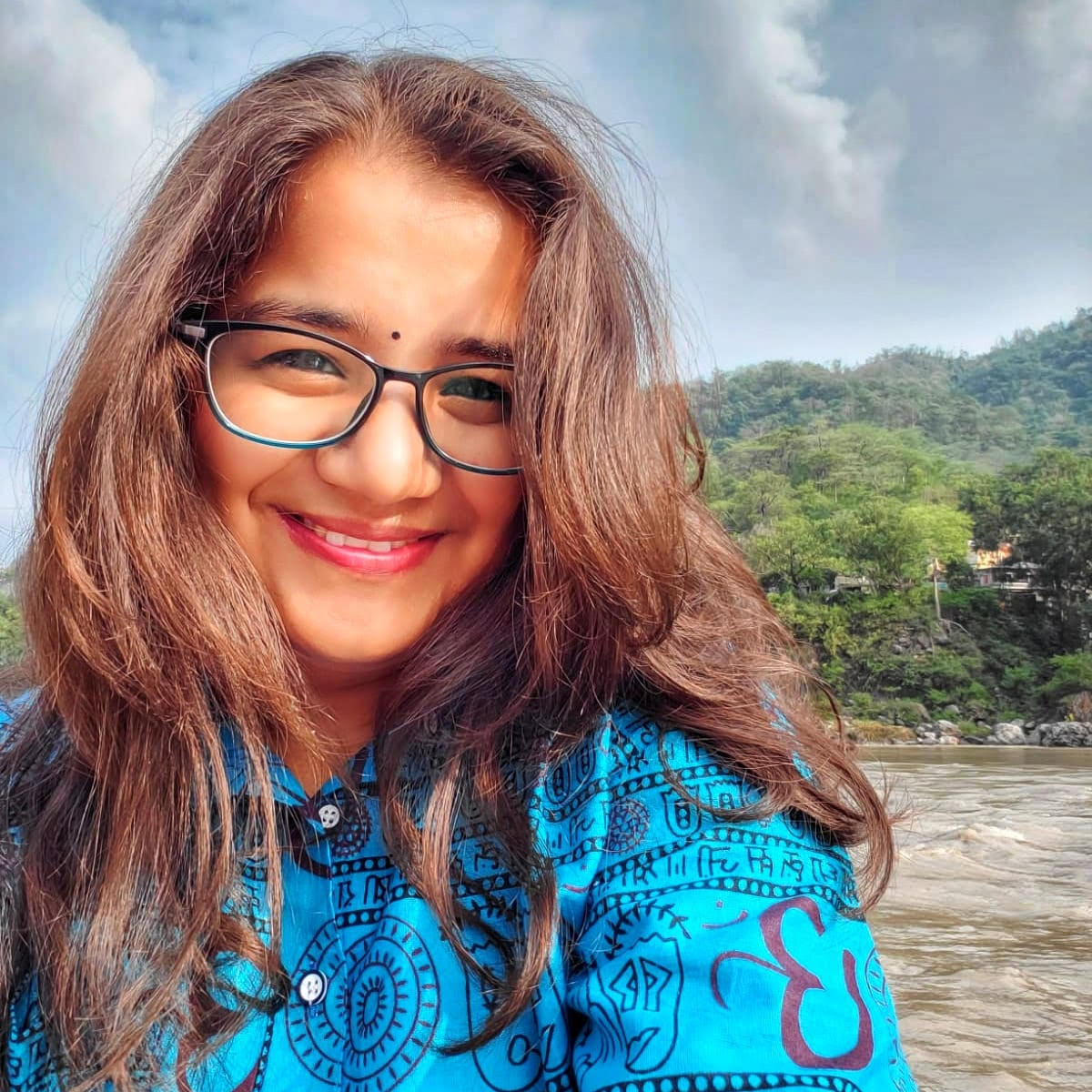
I’m a small-town girl from Punjab, a software engineer by degree, but my heart is dedicated to the social impact sector. I believe in the power of stories and meaningful 1:1 conversations. Passionate about creating change, I strive to make a difference by learning and unlearning from others’ experiences.
Discover more from
Subscribe to get the latest posts sent to your email.

